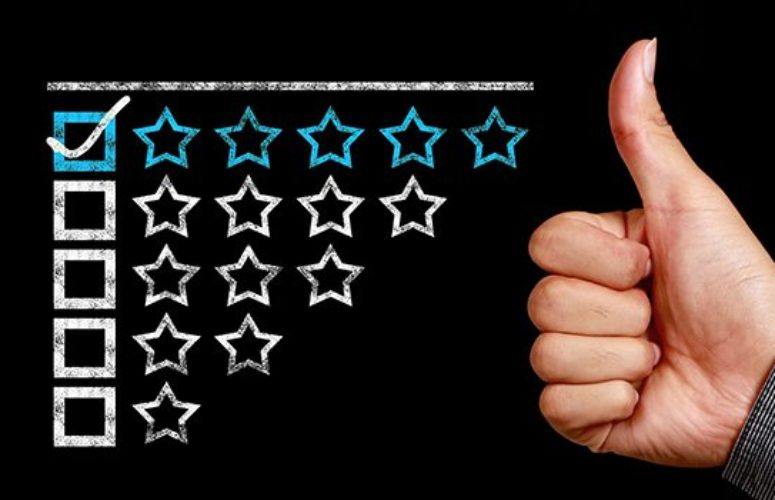
Understanding Business Credit Scores
Learn the ins and outs of maintaining a good number.
By Vince Baglivo, Contributing Writer On Jan 15, 2016When it comes to business credit scores, what small business owners don’t know can hurt them. From access to loans and lines of credit, to a better understanding of the financial stability and reliability of suppliers and vendors, business credit scores can and do impact the profitability and growth potential of businesses of all kinds and sizes. In fact, a simple mistake in the data used to build credit scores could have significant financial impact on a business without its knowledge.
There are lots of good reasons to learn how business credit scores differ from personal credit scores and how they are determined by the three major scoring agencies. Most lenders will consider both personal and business credit scores to create a composite of factors that provide insights into a business’s potential credit worthiness as well as risk.
As consumers, we are bombarded with messages about the importance of – and free access to – our personal credit scores. All are based on FICO (Fair Isaac Corporation) scores, so they are similar in result. A personal credit score includes personal information like type of credit extended, length or seasoning of the account (how long you have maintained a credit card account may influence your score), and the amount of credit used in comparison to your credit limits.
According to Barbara Anne Gardenhire-Mills, supervisor of lender relations and economic development at the US Small Business Administration’s (SBA) New Jersey District Office, business credit scores look at things like the repayment history of a business (on time, late and even early payment) including things like term loans, lines of credit, credit cards and payments to vendors and suppliers. The scores usually include some of the personal credit information of the business principals as well as length of time that a business has been in existence, number of employees and assets and liabilities.
Costs for obtaining a business credit score will range from as little as a few dollars to as much as hundreds of dollars, depending on how many different reports are purchased. That’s important, because the three major and countless smaller agencies in an increasingly competitive field use a range of algorithms and scoring measures to determine their findings. Most provide a number of different types of reports focused on specific data and information, further complicating the process.
“Forewarned is forearmed,” adds Gardenhire-Mills. “Learning about business credit scores and taking an active interest in their accuracy and currency of information is beneficial to business owners, and something the SBA actively supports with credit experts and resources.”
Business Credit Bureaus – The Big Three
While the list of smaller business credit reporting agencies is long and growing longer, there are three bureaus recognized as leaders in the field: Dun & Bradstreet (D&B), Equifax and Experian. Only D&B focuses exclusively on business monitoring and reporting. Equifax and Experian offer both business and personal credit monitoring, scoring and reports.
D&B is the world’s largest commercial database, with more than 240 million company records derived from some 30,000 data sources, and trade data from more than 1 billion accounts receivable records, updated 5 million times per day. The Dun & Bradstreet D-U-N-S® Number, a unique nine-digit identification sequence, is used by the world’s most influential standards-setting organizations and is often required by global corporations, governments, industry and trade associations.
D&B looks at both performance and predictive-based scores. Perhaps the most familiar performance measure is D&B’s 100-Point PAYDEX Score. Your company’s track record regarding bill payments and credit history with suppliers and vendors is included when D&B calculates your PAYDEX Score. Financial statements and other public information collected from suppliers and vendors, plus industry and historical sources, contribute to a D&B Rating, a respected measure of a company’s financial well-being.
Predictive-based scores look at how a business will perform going forward (usually a minimum of 12 months), and include a Delinquency Predictor Score (will bills be paid on time?), a Financial Stress Score (are there financial problems ahead?) and a Supplier Evaluation Risk Rating (will goods and services be delivered as promised?).
Equifax organizes and analyzes data on more than 600 million consumers and more than 80 million businesses worldwide; its databases include more than 200 million employee files. Equifax looks at business demographics, public records (judgments, liens, bankruptcies, etc.), corporate family trees and small business owners and/or guarantors associated with a business, to determine its business credit scores.
Equifax also offers access to the Small Business Financial Exchange, Inc., or SBFE®, a non-profit trade organization for small business lenders formed in 2001 that advocates for the safe, blind exchange of small business data like financial payment history. On the organization’s website, SBFE is lauded as “the first, and remains the only independent industry-governed consortium of its type with give-to-get requirements, data use safeguards, governance and compliance oversight.”
Experian, named by Forbes magazine in 2014 as one of the world’s most innovative companies, has clients in more than 80 countries and employs more than 16,000 people worldwide. Experian collects credit obligation information from business suppliers and lenders, legal filings from local, county and state courts and company background information from independent sources, including state filing offices, public records, credit card companies, collection agencies, corporate financial information and marketing databases. That information is combined with data from other sources, including trade payment experiences submitted by payees, public record information, collections information and company background and comparative data, so a company’s payment performance can be evaluated within the context of its industry.
Experian Business Credit Scores are based on multiple factors that influence financial risk including credit (number of trade experiences, balances outstanding, payment habits, credit utilization and trends over time), payment records (currency, frequency and dollar amounts associated with liens, judgments or bankruptcies) and demographic information (number of years data on file, Standard Industrial Classification (SIC) code and business size).
Amber Colley, a business credit expert and director with Dun & Bradstreet, has coached thousands of business owners on establishing a business credit profile that will get them the funding, cash flow and finance terms they need. She says that D&B strives to work with small business owners in order to educate them on how to build business credit, so in return they can use their business credit reports to leverage better terms, rates and prices, and attract potential customers.
Colley emphasizes the importance of understanding what scores are included in your business credit report and what they say about your business. “As a small business owner, these business credit scores can have a direct impact on your ability to access capital, partner with certain vendors, and can affect the rates, terms and pricing you are given,” she points out. “There are many scores in your business credit report, including those that showcase how likely you are to pay your bills on time in the future, the likelihood you will experience financial distress, and how reliable you are as a supplier, a partner or a vendor, just to name a few. The robustness and accuracy of these scores is driven by the amount of information included in the business credit file on which reports are based.”
Proactive Steps
It’s also important for business owners to find out if their businesses have been assigned a D-U-N-S Number (apply for free at dnb.com). If your business already has a D-U-N-S Number, go to Dun & Bradstreet and see what their reports say about your business. “Your business credit report is not just about your company’s creditworthiness – it also speaks to your credibility based on how much information is in the file,” Colley adds. “We recommend managing and monitoring your business credit report to make sure that the report is reflective of the size and strength of your business with accurate and complete information.”
In addition to monitoring business credit scores to ensure they are accurate and based on the most current information, there are several steps small business owners can proactively take to positively impact their scores. Paying off outstanding debt will provide quick dividends. Make payments on time, all the time, a top priority. Establishing credit with a business credit card can also help; just be sure to stay current with payments and avoid maxing out the card by using all of the credit offered. Experian recommends keeping your balance at 20 percent to 30 percent of your credit limit. You can also encourage suppliers and vendors to report your payments to the credit reporting agencies, because a long list confirming your positive credit history can help boost your business credit score.
While the information derived from business credit reports and scores is extremely important and useful when a financial institution is considering lending opportunities, there are other factors that contribute to the decision-making process. Santander’s Tim McNaught, regional head of New Jersey Middle Market, Corporate and Commercial Banking, says the character of potential borrowers and the rapport they establish with lenders can be equally important. “An existing or past relationship with a business owner, the long-term success of a business, personal investment by owners in their own businesses, even referrals and references from professionals like accountants and lawyers or respected community members can have a positive impact,” McNaught concludes.
Related Articles:




